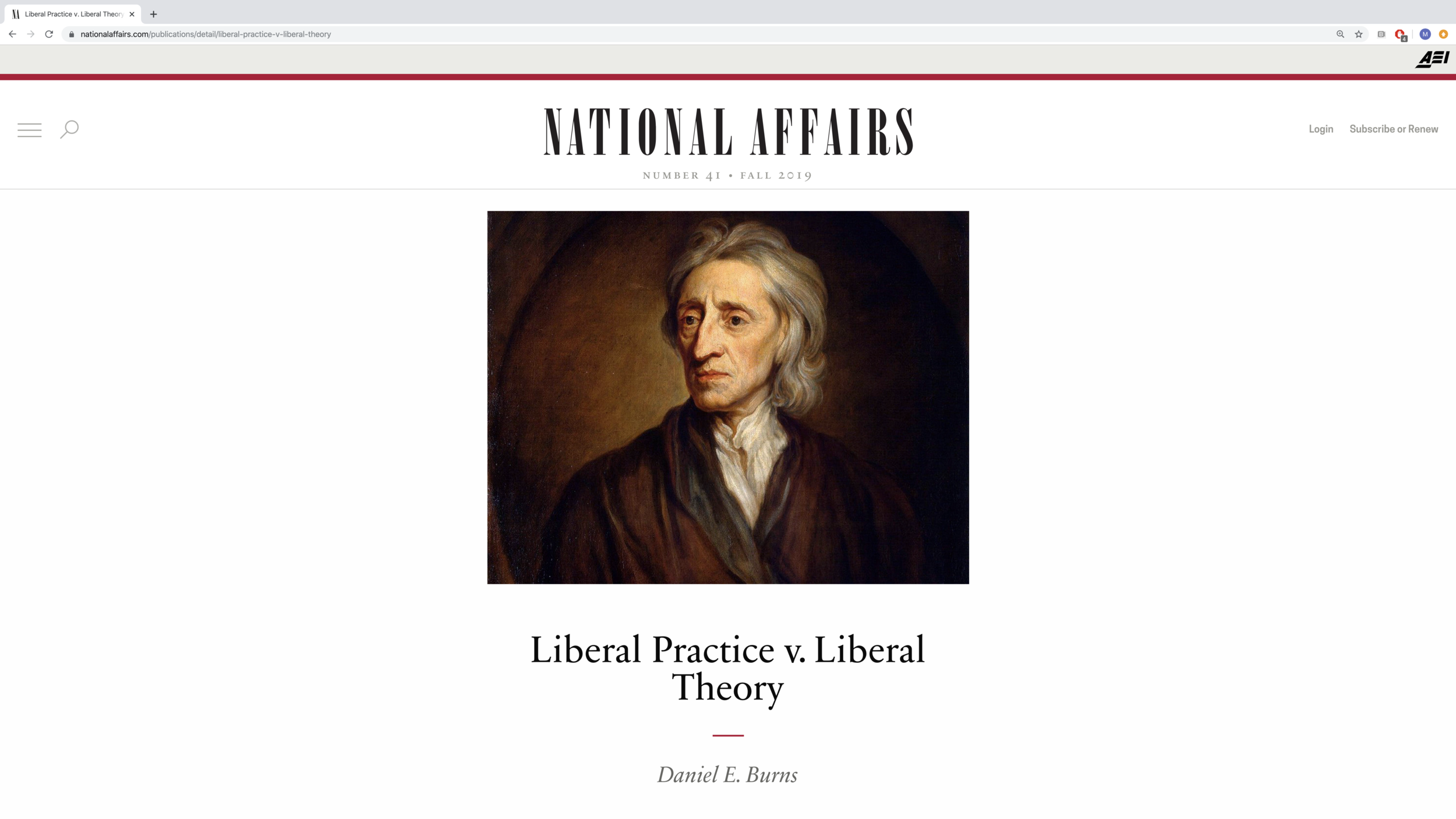Daniel Burns on Liberal Practice v. Liberal Theory
“Liberal Practice v. Liberal Theory” is a long-read via John Davidson. The title of this post is a link. It is related to my political philosophy posts, for which links are collected here:
Here are my favorite two passages. This one is Daniel Burns himself:
Eventually, our future statesmen must also be formed by studying the many non-ideological texts within the tradition of American political thought, of which the Federalist Papers remain the unsurpassed exemplar. And they must be formed by reading, without help from any ideological narrative or cheat sheet, the texts on politics that formed the thinking of American statesmen from James Madison to George Kennan and beyond. This means reading the classics above all: Thucydides, Plato, Xenophon, Aristotle, Cicero, Livy, Plutarch, Tacitus, and others. That was, after all, the education that allowed our founders to read Locke with such marvelous selectivity. (The University of Dallas, where I teach, is one of a handful of schools where these texts remain at the heart of the politics curriculum.)
The classical educators of statesmen show us the real alternative to liberal ideology. They teach us how to conduct a non-ideological appraisal of our own liberal politics with a view to preserving and improving it. With Xenophon we ask, who constitutes the American ruling class, and how are they educated? With Thucydides we ask, where are the seeds of civil strife within our community, and how well are we keeping those seeds dormant? With Aristotle we ask, what views does our community pass on to its children? What moral and mental habits does it instill in them? With Plato we ask, how well does our community foster the things that make human life worth living, including love, friendship, and family? How well does it make space for things higher than politics, including knowledge, divine worship, and human excellence in general? With Cicero we ask, in light of our answers to questions like these, how can we make the best of the admirable but imperfect regime we find ourselves in? By what concrete policies can we encourage its strengths while discreetly shoring up its weaknesses?
This is Daniel Burns’s quoting Alexis de Tocqueville:
In every age, what has so strongly seized on the hearts of certain men is the attraction of freedom itself: its own charm, independent of its benefits. It is the pleasure of being able to speak, to act, to breathe without constraint — under the government only of God and the laws. Anyone who seeks in freedom something other than itself is made to serve.
